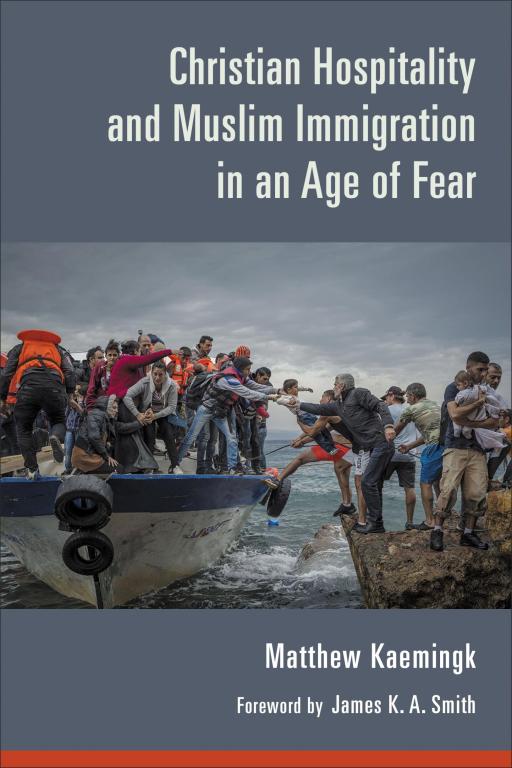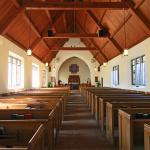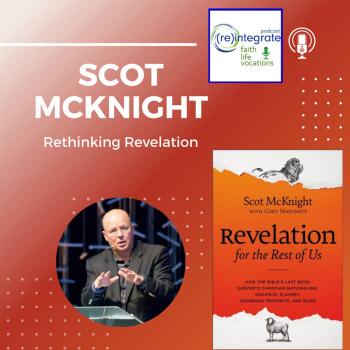7 of the Best Books I Read in 2021, Part 2
In alphabetical order, I will be posting some short reviews of seven of the best books I read in 2021.
 Christian Hospitality and Muslim Immigration in an Age of Fear by Matthew Kaemingk (Eerdmans, 2018).
Christian Hospitality and Muslim Immigration in an Age of Fear by Matthew Kaemingk (Eerdmans, 2018).
Matthew Kaemingk is the Richard John Mouw Assistant Professor of Faith and Public Life at Fuller Theological Seminary. His research and teaching focus on marketplace theology, Islam and political ethics, and public theology.
Christian Hospitality and Muslim Immigration in an Age of Fear is a book for our times. Muslims are migrating to America in large numbers, causing concern among Americans and Christians. Some politicians, as well as some Christians, tell us that we should fear Muslims, especially in a post 9/11 world. But a bedrock Constitutional right in America is religious freedom. And, according to Matt Kaemingk, a bedrock biblical teaching for Christians is hospitality.
Matt Kaemingk is immersed in neocalvinist public theology, taking major cues from the Dutch progenitors Abraham Kuyper and Herman Bavinck, and later scholars like Hans Boersma, Richard Mouw, Nicholas Wolterstorff, and James K.A. Smith.
Christian Pluralism
In fact, this book provides the best thing I’ve read tracing the history of the development of Christian Pluralism as it developed in the Netherlands in late 19th and early 20th century under Kuyper’s influence. This isn’t just for the sake of historical curiosity; there are crucial lessons here to be learned for 21st century America. As I read what Kuyper was dealing with in his nation in his day, it was eerily familiar to what we are dealing with in our nation in our day.
The influence of Christian faith on society had waned in the Netherlands. In its place, the majority placed their faith in the Dutch secular liberal nation-state. The flashpoint, of course, was over public education. “Soon after they came into power in 1795, the liberals had shrewdly recognized that the nation’s schools would be the critical ‘battleground for the minds of the young.’”
Culture Wars: Nothing New
We’ve heard it here in the United States: There are those who believe that the state should have the authority to train our children, not only teaching Reading, Writing, and Arithmetic, but also how to frame thinking, how to view the world, how to see history, and how to be good, productive citizens of the country. A secular liberal education is appealing to those who want hegemony in the way we think and function in society.
The newly empowered Dutch liberals of the early 1800s allowed a certain kind of religious freedom: people can practice their faith, as long as they did it in private. Public life, they insisted, should be ruled by secular liberalism.
How did Dutch Christians react to the emerging hegemony of liberalism? One of four ways: (1) Assimilation, (2) Moderation, (3) Retreat, and (4) Retribution. Sounds familiar, doesn’t it?
But along came Abraham Kuyper, who introduced a new, fifth response: Christian Pluralism. Instead of battling a liberal hegemony by insisting on a Christian hegemony, Kuyper insisted that the way forward was a pluralistic Netherlands.
Kaemigk writes,
“In opposition to the liberal definition, Christian pluralists insisted that true, deep, and rich religious freedom needed to take religion seriously for what it is—a public, cultural, and institutional movement in the nation.”
“Moreover—and this is critical—if the state wanted to fund schools, hospitals, and charitable organizations, Christian pluralists insisted that they do so equally. Liberal organizations could no longer receive preferential treatment.”
Let this sink in: Kuyper’s Christian Pluralists agreed that the state should make sure all children receive basic education. But Kuyper convinced the people of the Netherlands that liberalism in itself was a faith system, and thus should not have favored status over other faiths. He also persuaded the Dutch that true liberal democracy was a place where the public square allows for an equal contest of worldviews, ideas, and ideologies. The secular liberal worldview shouldn’t get favored status, just as the Christian worldview shouldn’t either.
Uniformity is Not the Goal
Kuyper convinced people that uniformity of beliefs is an undesirable thing and that it is also an impossible thing. We will have a never-ending culture war where everybody is fighting to get everybody else to believe what they believe. The uniqueness of Kuyper’s vision was in its “utter refusal to grant ultimate sovereignty to any mortal institution or individual. For Kuyper, no state, electorate, constitution, or religious body was deserving of ultimate authority.”
This is the essence of Kuyper’s most famous quote: “There is not a square inch in the whole domain of human existence over which Christ, who is sovereign over all, does not cry, ‘Mine!’”
This not only means that no secular institution has sovereignty, it also means that no Christian church or institution should try to wrestle power away from anyone else since no human person or group, even those who claim to be Christian, has that authority. Only Christ is sovereign.
Josh Hawley Misrepresenting Kuyper
This should be news for politicians like Senator Josh Hawley, who readily invokes Kuyper’s words. Hawley mistakenly thinks that “Every Square Inch” means that Christians should “take the Lordship of Christ into the public realm,” in order “to seek the obedience of the nations. Of our nation!”
Wrong, senator.
Kuyper wasn’t advocating for a theocracy under Christ; quite the opposite. Kuyper was saying that Christ’s Lordship doesn’t need to be “taken” anywhere, since Christ is already sovereign over it all.
Kuyper was saying that instead of making the Constantinian mistake all over again, hoping for a new Christendom, Christians should seek to live at peace with people with other ideologies.
Engaged in All Aspects of Public Life
It also means that Christ is sovereign over all aspects of cultural life—not only government, but also business, church, education, family, science and medicine, media and news, arts and entertainment, etc.
Thus, everybody should have access to each of these spheres, participating in them and bringing their unique contributions and worldviews to bear on them. Christians, then, are not limited to private church life, they should also be involved in every aspect of culture, working with others for the common good.
Christian Pluralistic Hospitality toward Muslims
Here is where hospitality to Muslims comes into play. If no faith worldview should have favored status and if every faith worldview should have equal access to creating and participating in cultural institutions, this must be extended to all faiths, including those of the Muslim faith.
Kaemingk writes,
“Muslims express their faith through cultural practices like clothing, music, and the arts. Christian pluralists will not be alarmed when Muslims begin to develop institutions like schools, charities, media outlets, and even political parties. These public manifestations of Islamic convictions will be seen as completely natural… Christian pluralists will encourage Muslims to fully express and defend their faith publicly using their own distinct moral language…”
“Finally, Christian pluralists must expose liberalism’s attempts at Muslim assimilation as hopelessly backward. Dreams of liberal uniformity must be exposed as fundamentally incapable of responding to a religiously diverse and dynamic world.”
Links to posts in the series, “7 of the Best Books I Read in 2021:”
1. Against the Gods: The Polemical Theology of the Old Testament By John D. Currid
2. Christian Hospitality and Muslim Immigration in an Age of Fear by Matthew Kaemingk
![]() Purchase these books from independent Christian bookstore owners, Byron and Beth Borger at Hearts and Minds Bookstore
Purchase these books from independent Christian bookstore owners, Byron and Beth Borger at Hearts and Minds Bookstore













